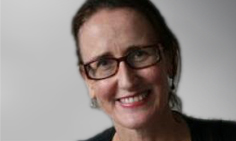THERE’S nothing like a hint of a medical conspiracy to get people’s heart rates up.
Among the perennial conspiracy theories are those that claim doctors only promote immunisation because they’re in the pay of the pharmaceutical companies, or that they deny patients’ access to a host of “natural” miracle cures in order to protect their own livelihoods.
Joining that distinguished company is The Widowmaker, a feature-length documentary about the perhaps unlikely topic of computerised tomography (CT) scanning for coronary calcium.
The film’s website shouts at potential viewers to: “WATCH THIS FILM — IT COULD SAVE YOUR LIFE”.
And it could, I suppose … if watching it meant you stayed inside and therefore avoided being hit by a bus on your way to, I don’t know, getting some actual cardioprotective exercise or something.
The film’s essential argument is that CT scans could have saved hundreds of thousands of healthy, asymptomatic people from sudden death as a result of myocardial infarction, and that greedy doctors have hidden this “fact”.
“The Widowmaker uncovers a conspiracy of silence around that most vulnerable of human organs — the heart”, the website proclaims.
“Every minute of every year, an American drops dead of a heart attack, a huge number without any warning or prior symptom. For thirty years a hidden battle has been fought inside America’s medical establishment that has condemned them to death — a battle that is as much about money, as it is about medicine — a battle that this film reveals for the first time.”
The villains of the story, apparently, are interventionist doctors who have deliberately hidden the benefits of early screening because they are raking in so much money from inserting stents in people with more advanced disease.
Perhaps it’s our secret hope that somewhere, somehow, there is a test or a procedure that will magically protect us from all risk and deliver us from mortality that creates a willing audience for this kind of stuff.
The sprinkling of scepticism in online conversations about the doco’s claims tends to be outweighed by the outrage at evil doctors who have denied people this lifesaving test.
Some reputable media organisations have also taken the film’s claims at face value: a Los Angeles Times review, for example, said it “follows the money in the treatment of heart disease, revealing how the profit factor has adversely affected millions of people”.
Of course, vested interests exist in medicine as elsewhere and they certainly can lead to patients being harmed, but is that really what’s going on here?
Screening is not, despite what many people like to think, a risk-free undertaking.
All tests carry the risk of false-positives, which can lead to unnecessary treatment that may bring risks of its own, and false-negatives, which might create an unfounded belief that the patient does not need to make the lifestyle changes recommended by their doctor.
In the case of calcium scoring, there are obviously also risks from the radiation associated with CT scanning.
So, for screening to be recommended in low-risk, asymptomatic people, we’d need good evidence it actually saves lives, not just a whole lot of anecdotes.
And, according to Australian guidelines, that evidence is not yet in.
The Widowmaker documentary glosses over such complexities in its quest for a dramatic story with all the Hollywood bells and whistles.
The filmmakers did interview doctors who expressed reservations about calcium screening in healthy asymptomatic people, but their views didn’t always make the final cut, according to medical journalist Jeanne Lenzer, an associate editor at The BMJ.
US cardiologist Professor Rita Redberg, for example, said she told the filmmakers about the harms of calcium screening and the lack of clinical evidence of benefit. Her interview does not appear in the film.
What’s more, as Lenzer makes clear, the filmmakers do not extend their concern about vested interests in medicine to the screening advocates, and their possible links to CT manufacturers and scanning providers.
“One thing is certain”, Lenzer writes about the likely impact of the film, “doctors’ offices can expect an uptick in worried individuals convinced that their lives will be spared if only they can have a coronary calcium CT scan”.
Jane McCredie is a Sydney-based science and medicine writer.

 more_vert
more_vert
Please invite Dr Norman Swan and 4 Corners to comment on this documentary
Thanks for the article, Jane. We know from othe studies that virtually every adult has calcium in their coronary arteries. We also know that these lesions don’t correlate well with functional perfusion studies. All of these tests feed into the growing phenomenon of testing and over-diagnosis. A test that is sold as less invasive than angiography can result in more patients GETTING invasive testing – with its intrinsic risks.